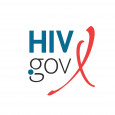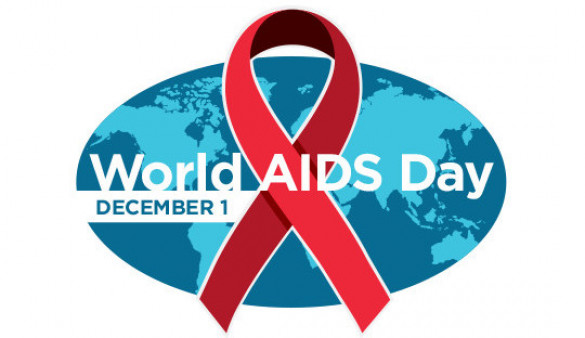Every year on December 1st, the world unites to commemorate World AIDS Day. This annual event serves as a reminder of the global struggle to end HIV-related stigma, an opportunity to honor those we have lost, and a rallying cry to continue working toward a day when HIV is no longer a public health threat. In 2023, we mark the 35th commemoration of this important day with the theme “World AIDS Day 35: Remember and Commit.”
The first World AIDS Day took place in 1988, providing a platform to raise awareness about HIV/AIDS and honor the lives affected by the epidemic. Over the past 35 years, we have witnessed significant progress in addressing HIV/AIDS thanks to advancements in medical research, increased access to treatment and prevention, and a broader understanding of the virus. We have also seen a tremendous global advocacy community unite to take on challenges and hold institutions accountable for ensuring access to these advancements.
“The 35th commemoration of World AIDS Day is an opportunity to reflect on our journey, acknowledge and celebrate the progress we’ve made, and recognize the challenges remaining,” said Admiral Rachel L. Levine, MD, Assistant Secretary for Health at the U.S. Department of Health and Human Services. “However, many people with HIV still lack access to essential health care and support services. We must strive to increase equitable access and outcomes for HIV testing, prevention, treatment, and care services. The battle is far from over.”
This year’s theme, “World AIDS Day 35: Remember and Commit,” pays tribute to those we have lost to HIV/AIDS. The impact of this epidemic has been profound, affecting individuals, families, and entire communities across the globe. Remembering the lives lost not only honors their memory but also emphasizes the urgency of our commitment to end the HIV epidemic.
Through remembrance, we draw strength and determination to redouble our efforts in fighting the disease and providing support to those with HIV. It’s time to remind ourselves of the importance of compassion, empathy, and solidarity in the face of adversity.
The other aspect of this year’s theme, “Commit,” emphasizes our collective responsibility to act. Each one of us can make a difference, whether through working to improve health equity and ending the disparities in access to prevention, care, and treatment; promoting scientific education and awareness; or supporting organizations that work tirelessly to serve those at risk and living with HIV—we need a whole of society response to win.
“The progress we have made in the HIV/AIDS response required governments, the community, civil society, advocates, activists, the faith-based community, and public and private organizations to come together for the shared goal to save lives and change the course of the HIV/AIDS pandemic. It will require continued engagement, commitment, and will to end HIV/AIDS as a public health threat by 2030,” said Ambassador Dr. John Nkengasong, U.S. Global AIDS Coordinator and Senior Bureau Official for Global Health Security and Diplomacy.
Our National HIV/AIDS Strategy and the PEPFAR Strategy outline actions that are necessary to accelerate our progress:
- Increase Awareness and End Stigma and Discrimination: Spreading accurate information about HIV, reducing stigma, and promoting prevention and testing are crucial steps. Stigma and discrimination remain formidable barriers to effective HIV testing, prevention, and care. We must commit to creating societies that are inclusive by ending discriminatory laws, policies, and practices that hinder the achievement of our goals to address the HIV epidemic.
- Accessible Healthcare and Support Services: Creating healthcare systems that provide high quality, affordable, culturally and linguistically appropriate prevention, testing, and treatment for all individuals, especially the priority and key populations identified in the Strategies, is a must. Millions lack access to life-saving medical care and medications. Many who do have access often experience interruptions in treatment due to complications with transportation, housing, or food insecurity. A wholistic approach to service delivery that positively influences the social drivers of health for those living with HIV is needed to help them achieve optimal health and wellness.
- Prevention Efforts: Prevention remains a vital component of the fight to end the HIV epidemic. We must continue to promote education, support safe practices that include syringe services and overdose prevention programs, and access to PEP and PrEP to reduce new infections.
- Research and Innovation: Scientific research and innovation have played a pivotal role in the progress made in 40 years of the HIV epidemic. Committing to ongoing research is essential for developing new treatments and prevention methods, and ultimately finding a cure.
- Community-Driven Responses: Programs and initiatives do best when driven by the voices of the most impacted communities. We must listen to what people with lived experience tell us works and what doesn’t work.
We also know the importance of encouraging collaboration and cooperation among countries, organizations, and individuals to create a global network of support and resources for our collective efforts. This includes support for the reauthorization of PEPFAR and the continuation of our efforts to increase best practices and lessons learned between our domestic and global programs as we all work across the globe to address HIV.
The 35th commemoration of World AIDS Day reminds us of the journey we have taken and the road that lies ahead. Together, through remembrance and unwavering commitment, we can look forward to a brighter, healthier future for us all.
This blog post was originally published September 29, 2023, on HIV.gov.








Comments
Comments